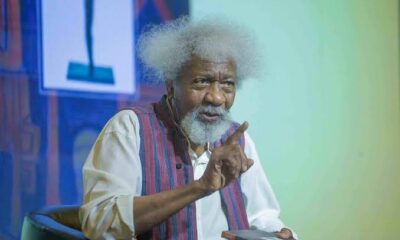Strictly Personal
Soyinka prize in illiteracy
On 13 July 2018, the 84th birthday of Olumo Wole Soyinka, the 1986 Nobel Laureate for Literature, I honour him by revisiting a debate that is raging on the Internet over what many call my misreading of his work, especially with reference to my interpretation of his play, Death and King’s Horseman
Published
6 years agoon
On 13 July 2018, the 84th birthday of Olumo Wole Soyinka, the 1986 Nobel Laureate for Literature, I honour him by revisiting a debate that is raging on the Internet over what many call my misreading of his work, especially with reference to my interpretation of his play, Death and King’s Horseman. Literary experts have been marvelling about the “Author’s Note” that accompanies Death and the King’s Horseman by Wole Soyinka.
Most playwrights leave it to the directors and producers of the play to interpret it as they wish but Soyinka was worried that most experts were misreading the play. He took the unusual authoritarian step of stipulating how the play should be interpreted but the critics appear not to notice and have continued to misread the play, in my own humble opinion. Soyinka left clues that would guide readers to decode his original intention in writing the play but most literary critics miss the point and some accuse me of being the mis-reader.
The very first sentence in the author’s note may have led many critics astray by stating that the play is based on real historical “events which took place in Oyo”, which the author defined as “an ancient Yoruba city of Nigeria”. This is misleading in a number of ways that literary critics should have been able to understand. To say that the events took place in 1946 would be to localise the time and space of the dramatic events whereas in the world of theatre, events do not take place exclusively in the setting but also on every stage where the play is produced.
Soyinka expected that literary theorists would understand that the playscript is not simply an archival document or ethnographic report but the work of original creation even when based on real events.
The play was not expected to be read, as the verbatim report of a tragic case that took place once upon a time. This is true of all works of creative writing that are supposed to be inventive no matter how much resemblance there may be between fiction and reality. In fact, many writers include a disclaimer that that any resemblance to real events was unintentional. As a matter of fact, the same can be said about reality genres that are full of inventions too. Soyinka clearly stated in the first paragraph of his author’s note that he made “changes” in the narrative “in matters of detail, sequence and of course characterisation”.
He also informed the illiterate critics that he deliberately set the play back a few years “while the war was still on, for minor reasons of dramaturgy.” Here, Soyinka is guiding the would-be producer away from a simplistic historical interpretation of the play as being only relevant to the case of 1946 given that dramaturgy grants artistic license that defies the laws of historical specificity. In addition, Soyinka may have misled the interpreters of the play by saying that Oyo was an “ancient Yoruba city of Nigeria”. Here he could be challenged by historians who may point out that Oyo was an ancient Yoruba Empire and not simply a city and that by 1946, it was no longer simply a Yoruba city but a multicultural one.
Moreover, nothing “of Nigeria” can be said to be ancient because Nigeria itself is a modernist invention by colonisers. The hint about the Nigerian setting of the play should have encouraged the critics to understand that the play is not only about a Yoruba tragedy but about a Nigerian tragedy. The reference to “while the war was still on” should have massaged the memory of the critics to remind them that the play was published only five years after a tragic genocidal war in Nigeria in which Yoruba elites played a leading aggressive role along with other ethnic elites in Nigeria. This play, in my lay opinion, is better understood, as part of the soul-searching by Soyinka after he was released from solitary confinement for opposing the genocidal war against the Igbo. Why were highly educated Yoruba leaders the ones who cheered on the genocide against the Igbo in Biafra?
Also, Soyinka indicated that those who were interested only in the factual account of the case of 1946 should go and read it in the British National Archives in Kew. He also pointed out that those who wanted to read a more exact historical re-enactment of the case should consult the “fine play in Yoruba (Oba Waja) by Duro Ladipo”. In other words, Death and the King’s Horseman is not that kind of historical re-enactment nor is it the kind of “misbegotten’ German television film about the case. The play was a more urgent intervention while Soyinka was in exile following the end of the war and his release from solitary confinement for having the audacity to oppose tyranny. Unlike his other plays, he did not wait for the play to be produced before he published it. I believe that Soyinka was directly and indirectly challenging his fellow Nigerian intellectuals to account for their opportunism in supporting a genocidal war that took 3.1 million lives in 30 months.
In the third paragraph of the author’s note, Soyinka declared that the “bane of themes of this genre” is that once the text appears, “they acquire the facile tag of ‘clash of cultures’”. He rejected such a label as “prejudicial” in the sense that it is prone to “frequent misapplication” and also because the label “presupposes” a potential equality in every given situation between the cultures of the coloniser and the colonised “on the actual soil of the latter”. Soyinka went on to award “the overseas prize in illiteracy and mental conditioning” to the writer of the blurb of the American edition of his novel, Season of Anomy, for “unblushingly” stating that the novel is about the “clash between old values and new ways, between western methods and African traditions”.
Soyinka explained that it is due to “this kind of perverse mentality” that he was forced to warn future producers (and critics) of the play to avoid “a sadly familiar reductionist tendency” and instead attempt to capture the “the far more difficult and risky task of eliciting the play’s threnodic essence.” Experts on the work of Soyinka are baffled by this injunction and wonder openly what he was banging on about? What is Soyinka trying to hide? He was trying to reveal something.
I offer the original interpretation that Soyinka was referring to the genocide against the Igbo which was the theme of the novel that he referred to, Season of Anomy, in which he recounted the eye-witness account of how fellow Nigerians hunted down tens of thousands of innocent Igbo men, women and children and massacred them in a pogrom that led to the secession of the Eastern region and the intensification of the genocide. In that novel, he mocked the archaeologists for poking around in search of fossilised bones while fresh blood flowed like river in the country and they did not seem to be bothered.
He also challenged the sociologists who came with “erudite irrelevances” about marriage and divorce but refused to join him in opposing a genocidal war. The novel depicted the Marxists who were locked up in a mental asylum as phrase-mongers who failed to recognise the revolutionary situation in the country and instead rallied in support of the genocidal military dictatorship rather than turn the civil war into a liberation war. To suggest that the novel was about the clash of cultures was a strategy to condition the mentality of Nigerian intellectuals towards the acceptance of the propaganda that the Igbo who led the struggle for decolonisation were primitive tribalists perhaps because they had no chiefs while the ethnic groups that ganged up against them were more civilised because they were monarchical, according to the ideologues of colonial domination.
Walter Rodney also observed that to call the genocide against the Igbo a tribal war would be to call Shell BP a tribe (along with the United Kingdom and the Soviet Union) and Ikenna Nzimiro argued that the Marxists in Biafra were engaged in class struggles. The “threnodic essence” of the play refers to funeral songs in Greek tragedies and I believe that Soyinka was inviting the producers of the play to imagine a national mourning for the 3.1 million killed in Biafra that the country has refused to mourn. Agwuncha Arthur Nwankwo has been calling for a National Day of Igbo Mourning to be recognised by the Nigerian government as part of the atonement.
In the final paragraph of the author’s note, Soyinka observed that an alternative structuralist interpretation of the play is to see it as a cruel joke on the British colonial District Officer. He quickly dismissed such a reading as distasteful and added that he deliberately avoided writing dialogue or scenes that would support such a misinterpretation. He dictated that, “No attempt should be made in production to suggest it”. This sounds like an angry response to critics who choose to misread his works for ideological reasons while ignoring the concrete conditions that his works address.
A prominent Marxist literary theorist that I admire, Biodun Jeyifo, who is an expert on the work of Soyinka, was invited by the British Broadcasting Corporation to write about any work of literature that he saw as being representative of the global culture. He chose to write beautifully about Death and the King’s Horseman, as an anti-colonial play that tried to subvert the use of the Queen’s English by creating a “future” tradition of the Anglophone that was more figurative than the English language.
He invoked the work of Marxist cultural studies by Raymond Williams and by Stuart Hall to suggest that the other Englishes around the world serve to subvert the domination of the world by Standard English. I pointed out that his interpretation is too superficial for a Marxist because the “thredonic essence” of the play was not to show that Africans could speak English better than the English. I suggested that a cultural studies reading of the play would not have focused exclusively on the beautiful writing or language of the play but would have tried to see the challenge to monarchism and oppressive traditions in the play.
Jeyifo told me privately that I should go and read the play again because it is not against the monarchy or against ritual suicide but simply against the colonial domination of African cultures. I admitted that I could be accused of misreading the play but I called it a strategic misreading and wondered if it is possible for an expert on the work of Soyinka to misread it. Soyinka seems to think so and that is the whole point of his detailed telling off of the experts in his author’s note.
Read Also: The truth about being African versus dressing African
Contrary to the claim that Death and the King’s Horseman is only an anti-colonial play, Soyinka concluded his author’s note by stating that, “The Colonial Factor is an incident, a catalytic incident merely.” To him, the central “confrontation” or conflict that he tried to resolve in the play was “metaphysical” in the sense that it played out in the world of “the Yoruba mind – the world of the living, the dead and the unborn, and the numinous passages which links all: transition”.
Soyinka was puzzling about the metaphysics of the Yoruba worldview that made it possible for the best educated characters in the play to be the ones who cheered most vociferously for Elesin to abide by the tradition that expected him to kill himself in honour of a dead king. Similarly, Soyinka was wondering why the best educated Yoruba were the cheer-leaders of the genocide against the Igbo. Soyinka advised producers to try and capture this tragedy by using music to represent the macabre dance to the “music from the abyss” by the intellectuals who danced while millions were being slaughtered in Biafra.
I am not an expert in dramaturgy but I love the work of Soyinka. I cited his essay on Neo-Tarzanism in my criticism of the film, Black Panther, which I called an example of neo-Tarzanism. Following the serialisation of the criticism, I was invited by the KPFK public radio in Los Angeles to discuss the film with an Ethiopian publisher and an African American director of the Pan African Film Festival. During the discussion, the Ethiopian said that we should not condemn the presence of monarchies in Africa because there were popular emperors such as Mansa Musa and Haile Selessie who were admired by Africans and by the African diaspora.
The director of the Pan African Film Festival questioned my reference to Soyinka because he saw Death and the King’s Horseman as an indication that Soyinka was a monarchist who supported even the tradition that the horseman should commit suicide to honour the dead king. As Killmonger asked derisively in the film, I asked, this is your king? I stated that Soyinka used that play and almost every play of his to undermine the institution of the monarchy and call for democracy, which he is on record as admiring in Igbo culture. He spared the life of the Horseman in the play and his other tragedies – Kongi’s Harvest, Madmen and Specialists, King Babu; his novels, his poetry and his memoirs all support my interpretation of his anti-monarchical orientation.
Since the experts who have studied his work have focused almost exclusively on the structuralism, I propose to offer a post-structuralist or deconstruction radicalisation of his body of work to show that the tragedy of the state violence especially against the Igbo is at the centre of the conflicts that he has been trying to resolve. Just as the genocidal war was waged without a cease fire for humanitarian interventions, the author coincidentally instructs on page 8 of Death and the King’s Horseman that “The play should run without an interval.”
I agree with critics who will charge that I am misreading Soyinka here. If so, I will admit to a strategic misreading that is necessitated by placing the text within the context of a recent history of trauma that the author did not simply witness as a bystander but one in which he actively tried to stop the genocide and earned himself solitary confinement without trial. Sociologists approach the work of writers by taking into consideration, the context of the private and the public lives of the authors whereas literary theorists may concentrate exclusively on the technical, language, or structural aspects of the script as instructed by T.S. Eliot in his foundational essay, Tradition and Individual Talent.
What I am offering is a sociology of literature interpretation of Soyinka and I am certain that the rebel in him may force him to disagree with my interpretation and award me a national illiteracy prize. I am not contending that all existing interpretations of Soyinka are wrong. I am only saying that there is something missing in the community of Soyinka interpretations and I contend that what is neglected by critics is not minor but a central aspect of his work – his self-sacrificial opposition to the Igbo genocide in particular as a foundational part of his oppositional aesthetics in the face of tyranny.
Commentator: Biko Agozino.
He is Professor of Sociology and Africana Studies, Virginia Polytechnic Institute and State University, United States of America.
You may like
Strictly Personal
For EAC states to excel, members should hire expatriate ministers, By Joachim Buwembo
Published
2 weeks agoon
October 11, 2024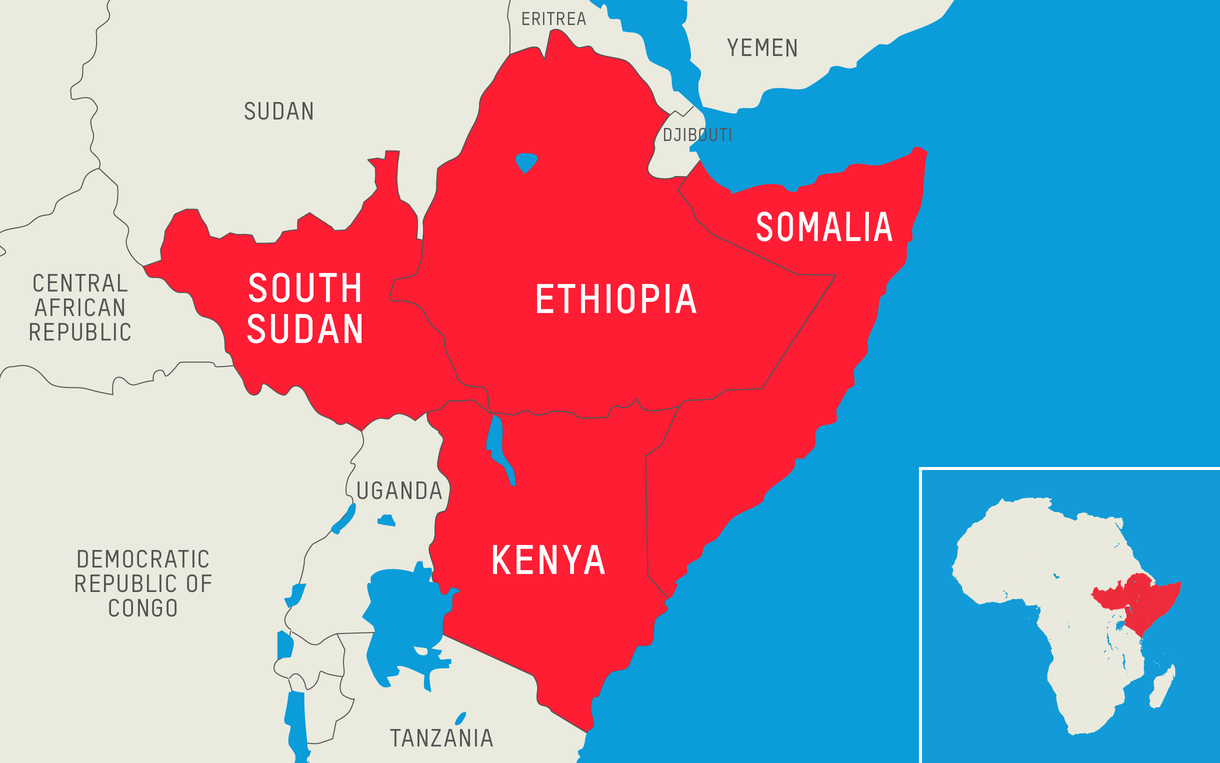
Next week, the East African Community, especially the original three members Kenya, Tanzania and Uganda, will be marking their revival Silver Jubilee, which is also an opportunity to reflect on 25 years after the passing of regional integration icon Mwalimu Julius Nyerere.
The integrationist and pro-federation Mwalimu would certainly be happy with the revival of the EAC. But how contented humanist Nyerere who committed his then poor country’s resources and lives to the emancipation of fellow Africans would be with the goings on in the region, can only be debated.
Hundreds of Tanzanian men and women at Nyerere’s command gave their lives so Ugandans would be saved from a dictatorship that attached low value to human life and “disappeared” political dissenters, with a few whose bodies were found having been disfigured sometimes with acid. In Kenya, extra-judicial executions of high-profile political dissenters were also being carried albeit with more sophistication than Uganda’s.
Should some people in Tanzania start derailing that lovely country backwards to catch up with the murderous Uganda and Kenya of the 1970s and criminalise the holding of different political views, then we would beg the EAC to find its manhood and insist that members start hiring expatriate ministers to man certain portfolios thus: For Justice and Law, expatriate ministers from the Scandinavian states would be preferable. But of course, beneficiaries of injustice and illegality would argue that ours are independent sovereign states; so to hell with protection of human lives.
For promotion of Trade and Tourism, expatriates from the United Arab Emirates would fit the bill. But of course, beneficiaries of poaching, smuggling and tax evasion would argue that ours are independent sovereign states; so to hell with expansion of trade and tourism.
For Industry, Indian expatriate ministers would do well to drive import substitution while creating millions of jobs in the region. But of course, beneficiaries of raw materials exportation and importation of consumer goods would oppose and argue that ours are independent sovereign states; so, to hell with the unemployed, human health and environmental protection.
For Finance and Economic Planning, Singaporean expatriate ministers would be appropriate, but of course beneficiaries of grand corruption and incompetence would argue passionately that ours are independent states; so let the taxes be stolen so the awful service delivery gets even worse while debilitating debts mount.
For Transport Infrastructure, expatriate ministers from the Netherlands would be suitable because integrated systems of air, rail, road and water were needed by yesterday, so that transport ceases being an obstacle and becomes an enabler of development instead.
But of course, beneficiaries dominant, inefficient transport modes will argue that we are independent, sovereign states; so let primitive transport systems and fragmented airspaces remain and keep the cost of living and doing business up.
For Energy, Japanese expatriate ministers would do the job to speedily guide our economies through the energy transition, and transfer technology like Chinese have done in Uganda to create local capacity to make electric vehicles.
But to drastically reduce reliance on fossil fuels some countries should consider hiring Ethiopian expatriate ministers who will know best how to say enough is enough, switch from internal combustion engines to electric.
US expatriate ministers can also be considered to help the adaptation of our aviation sectors to sustainable biofuel in addition to driving the processing of rare earth minerals into e-mobility batteries.
But profiteers from the poisoned fossil fuels would say we are independent and sovereign; so let fuel import bills remain high and the peoples’ health be damaged.
The all-important Education sector should without doubt be entrusted to expatriate ministers from Finland for wholesome development of our children.
But of course, the beneficiaries of the extortionist private schools and the cripplingly looted public institutions would argue that these are sovereign independent states; so let the children continue getting mentally stunted and unemployable.
And in Health, of course, the expatriate ministers should be from Sweden, to ensure that everyone accesses adequate health services. Expectedly, beneficiaries of public funds to secure treatment abroad and those who benefit from stolen medical supplies would argue that ours are independent sovereign states; so that the wanton deaths of children and mothers continue.
Give the Housing to expatriate Chinese ministers so we close the era of human beings living in pigsties. However, those who benefit from a disorganised, stunted housing sector would argue that we are independent sovereign states so the majority can continue living sub-humanly.
Joachim Buwembo is a Kampala based journalist. buwembo@gmail.com
Strictly Personal
Tanzania, we need to talk, By Othman Masoud Othman
Published
3 weeks agoon
October 4, 2024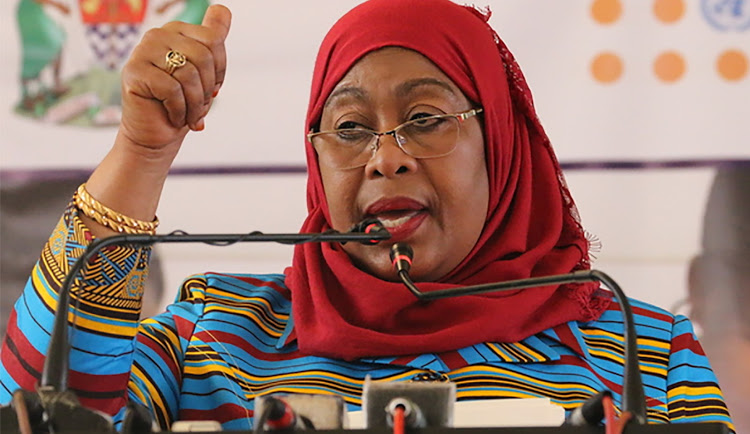
The ACT-Wazalendo party has been closely following and monitoring political events in the United Republic of Tanzania which, if not attended to urgently, might lead our country into an abyss.
In the six years of the presidency of John Pombe Magufuli, the country suffered a lot. There were claims of narrowing of the democratic space, the right to assemble and the right to free speech.
After the death of President Magufuli and Samia Suluhu Hassan assumed power, there was a sign of hope. The public optimistically welcomed the 4Rs (Reconciliation, Rebuild, Reforms, Reunite). Several positive measures were taken, including the formation of a special task force, which involved members from political parties, academic institutions, the private sector, and civil society. The team came up with many measures to be undertaken: Reform of political parties and elections laws, and the enacting of a new constitution. The President went further to investigate the problems around the criminal justice system and how to solve them.
It is one year to the next general election expected in October 2025, but there is a lot of pessimism, as not enough measures have been taken as promised. Even though the Elections Act was reviewed and the Electoral Commission renamed the Independent Electoral Commission, there is a lot to be done, including writing a new constitution and implementing the proposed reforms to the criminal justice system.
recently, there have been cases of abductions and disappearances of some activists and politicians. The situation got tense after a leader of Chadema, Ali Mohamed Kibao, was abducted and later found dead. Chadema accused the government security forces of these events and called for independent investigations. President Samia also condemned the abductions and ordered investigations.
Chadema also called for peaceful protests, demanding accountability and the police banned the demonstrations.
These happenings are a sign of uncertainty towards the general election, starting with the civic elections expected next month.
We urge the Chadema to reconsider demonstrations in the country. Human rights abuses are not just morally wrong, they are short-sighted. Human rights are a sound investment. They build resilient and prosperous communities and strong institutions based on the rule of law.
We, as a party, believe that our country has people full of wisdom and religious leaders who can guide our country back to the right track.
We urge all sides of the political divide to cool down. We believe that all players have reasonable demands and the failure to listen to each other has led us where we are as a country.
We urge the government to quickly initiate dialogue involving political leaders, the police, religious leaders and other stakeholders in order to bring sanity back to our country.
Our party leaders are engaging in talks between the government and other political parties to find solutions. We urge all the citizens of Tanzania to be united on this to build a better future. we believe that this is the time to talk.
Othman Masoud Othman is the First Vice President of Zanzibar and National Chairperson, of ACT-Wazalendo.
EDITOR’S PICK
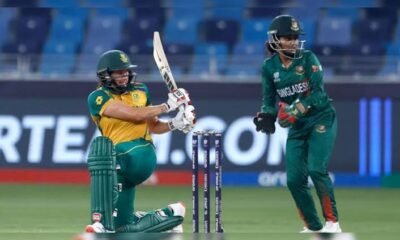

South Africa succumbs to New Zealand in T20 World Cup final
After a fairytale run to the final of the Women’s T20 World Cup in Dubai, South Africa succumbed to New...
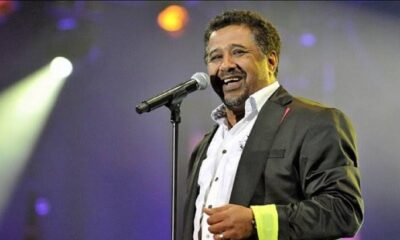

Algeria accuses renowned Singer Cheb Khaled of spying for Morocco
Algerian authorities have accused renowned musician, singer and songwriter, Cheb Khaled, of spying for neighbours Morocco as another wave of...
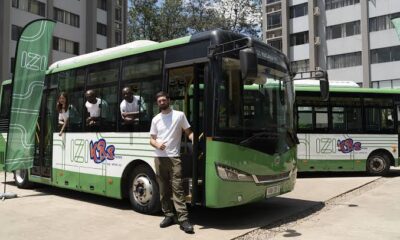

Rwanda’s e-mobiility startup IZI expands electric bus fleet after getting grant from Green Fund
Rwanda’s e-mobility startup, IZI, has announced the delivery of five electric buses to Kigali, the country’s capital city, after obtaining...
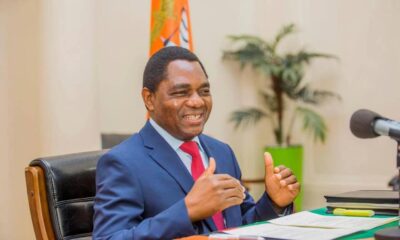

Zambia: President Hichilema sacks three Constitutional Court judges
Zambian President, Hakainde Hichilema, has finally sacked three Constitutional Court judges whom he had earlier placed on suspension. The affected...


In 6 months, Nigerians spent over $2.38 million on medical tourism
According to a recent report, Nigerians spent over $2.38 million on international healthcare services between January and June 2024. The...
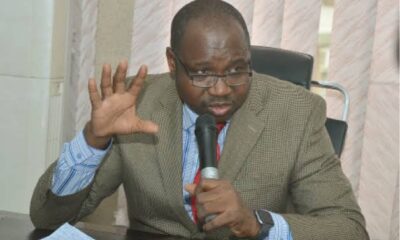

Nigeria confirms supplying 24-hr power to Togo, Benin, Niger
Despite its inability to provide steady electricity for Nigerians amid regular collapse of the national grid, Nigeria’s electricity regulatory body,...
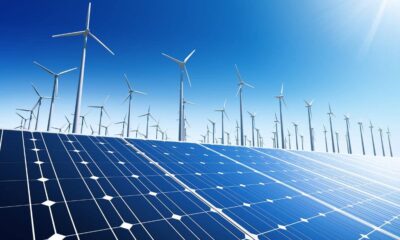

Egypt reduces 2040 renewable energy target to 40%, prioritises natural gas
Petroleum Minister Karim Badawi announced on Sunday that Egypt had reduced its 2040 renewable energy target down from a previous...
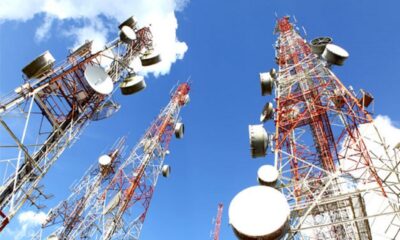

Nigerian govt imposes 5% tax on telecom, betting services
As part of a new plan to restructure the nation’s tax system, the Nigerian government has proposed a 5% excise...
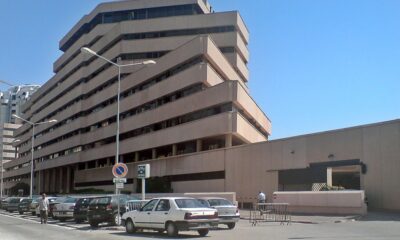

Again, Tunisian MPs want exclusive power of central bank over interest rates abolished
A measure by MPs on Friday indicated that the Tunisian central bank will no longer be the only entity able...
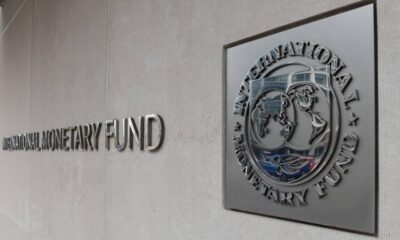

Ethiopia gets first $341 million loan program from IMF
Ethiopia’s $3.4 billion loan program received approval from the International Monetary Fund’s executive board on Friday, the fund announced, opening...
Trending
-
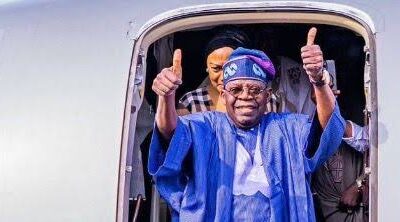
 Metro2 days ago
Metro2 days agoNigerians will begin to see the fruits of Tinubu’s labour— CoS Gbajabiamila
-

 VenturesNow2 days ago
VenturesNow2 days agoNigerian govt imposes 5% tax on telecom, betting services
-

 VenturesNow2 days ago
VenturesNow2 days agoEthiopia gets first $341 million loan program from IMF
-

 Metro16 hours ago
Metro16 hours agoNigeria confirms supplying 24-hr power to Togo, Benin, Niger


